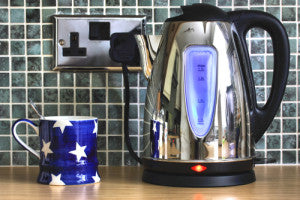
Home Electrical Safety
Electricity is an invaluable part of everyday living, but it can lead to dangerous outcomes in the absence of careful handling and care. These home electrical safety tips will assist with safety whether the electricity is being used for kitchen appliances or garden equipment.
Avoiding wet contact
Water and other liquids conduct electricity, so handling electrical appliances and cords with wet hands can result in electrical shock. Always check for damaged or exposed wires and never handle appliances with wet hands. Keep appliances and cords well away from water and other liquids. Repair cords or discard damaged cords to minimise the risk of water contact.
Clearing pathways
Make sure pathways are cleared of loose wires and extension cords, especially after a major electrical installation job. Loose wiring and extension cords left in pathways can lead to tripping, falling, and other accidents such as electrical shock.<
Never keep cords under carpet or rugs in areas of the houses where there is substantial foot traffic, as this can lead to electrocution. Nailing or stapling wiring or cords to walls and other surfaces in the home can also be a dangerous practice.
Grounding equipment
To further reduce the risk of electrical shock, keep electrical equipment grounded when handling. Grounding or earthing electric equipment provides overvoltage protection, helps stabilise voltage, and generally makes it safer to handle equipment.<
Maintaining electrical equipment
Over time and through normal wear and tear, electrical equipment can become worn out. It is important to maintain electrical equipment to keep appliances or devices in good working order and to improve safety standards. The frequency of maintenance will depend on the device itself. Maintenance usually needs to be carried out by specialised technicians or electricians who are qualified to undertake repairs or maintenance.<
Safety checks and practices
Householders can undertake their own appliance safety checks from time to time, although they should seek professional advice and follow the manufacturer’s instructions if there are any doubts. These are some basic safety checks and practices to keep in mind.
- Make a point of regularly inspecting appliances and electrical cords before use. Where there is any damage, have the item repaired before use or replace the item.
- Keep an eye on appliances in operation. In the event of any abnormalities such as overheating, shocks, sparks, or smoking, stop using the item.
- Consider installing ground fault circuit interrupters for outlets near sinks, as these interrupters can reduce the risk of electrical shocks.
- Give heat-producing appliances plenty of space to prevent overheating. For example, allow a generous perimeter of empty space around appliances such as TVs, computers, lights, and refrigerators.
